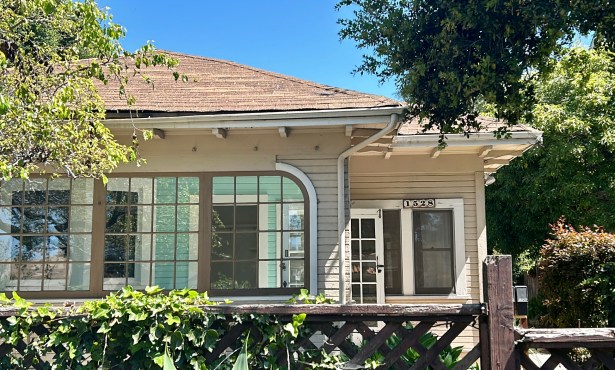Water Worries Return
The Goleta Grapevine
The history of the Goleta Valley is written in water. As a rural farming community, it relied on creeks and wells. With the advent of the Cachuma project in 1955, a spate of new water came through the mountains, spurring the replacement of orchards with houses and underwriting the growth of UCSB and the industrial and commercial sector. By early 1970, demand for water outstripped supply and the groundwater table was going down. The “water wars” ensued, with the Goleta Water Board becoming the main enforcer of a moratorium on growth. It was only in 1991, after a prolonged drought, that the voters finally approved bringing in state water to supplement local sources.

Now water is once again looming large in the Goleta Valley. While the 2005 Urban Water Management Plan found that water supply could meet expected demand through 2030, this was based on known projected development. It did not include the upcoming demands from the proposed expansion of UCSB or the potential development of agricultural lands. Still to come is the East Goleta Valley Community Plan study, about to get underway.
The water district is currently developing a Water Supply Assessment (WSA) for the City of Goleta. While supplies look adequate based on the current zoning, a number of water board watchers are questioning the reliability of some sources, particularly state water. The report acknowledges possible reductions due to changes required for endangered fish species in the Delta and the impacts of global warming on rainfall and earlier melting of the snow pack. Cachuma Lake, while pretty full right now, can go way down after a series of drought years. It is also slowly silting up, with an extra dose this year from the Zaca fire.
Eventually development is going to run up against a shortage of water. Who then decides who will be served? The WSA is quite clear on this. The water district’s responsibility is the provision of water. The county’s and the city’s responsibility is for land use planning within their respective jurisdictions. The WSA can “inform land use decision making,” but the county Board of Supervisors and the Goleta City Council respectively make the final determinations on development. Should decisions be made on a first-come, first-served basis as projects cross the planning department counter, or should criteria be set for allocation of future water supplies? Priorities could be set for affordable housing, revenue generators such as hotels, or even new big-box stores. Some water should be set aside for agriculture to support locally grown produce. The time to do this is now, before the crisis hits.
The history of water in Goleta is that when the supply begins to be limited, a new supply-Cachuma Lake, state water, or recycling-has been added. (Recycled water is non-potable and is used in Goleta for irrigation of landscaping, golf courses, and some crops.)
Orange County has gone a step further however. It has constructed a modern reclamation plant that can turn 70 million gallons of treated sewage a day into drinking water. The treated water does not go directly into the water supply but is injected into the ground water basin as a supplement to the county’s drinking water supply and a barrier to salt water intrusion. Additionally, it significantly reduces the amount of treated sewage discharged into the ocean. It did not come cheap: $490 million according to an article in the L.A. Times. This is a big plant and it is not clear if it could be built more cheaply on a smaller scale. It would almost certainly have to be a south coast regional enterprise if it were economically feasible here.
Desalination is also a potential source of new water, again expensive, and more environmentally damaging. The City of Santa Barbara prepared for this, but abandoned its plant with the advent of state water.
Could reclamation or desalination be the next water infusion on the South Coast? Do we want it if it opens the door to more development? Whatever we wish for, we should plan for it now across the region before drought and growth have us fighting for this scarce resource.



